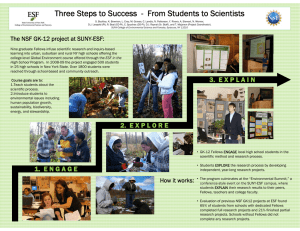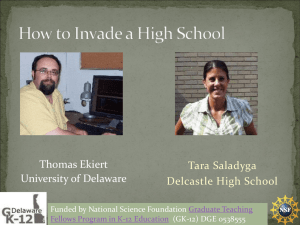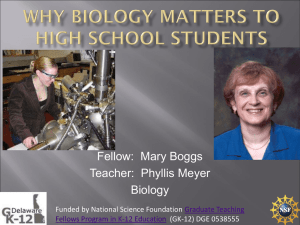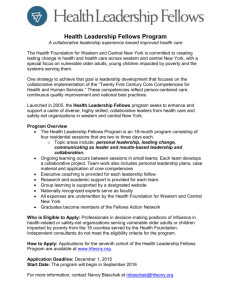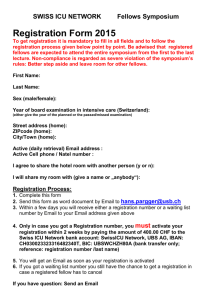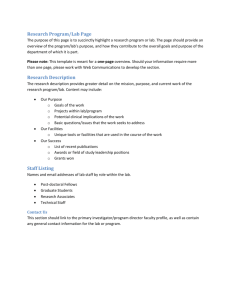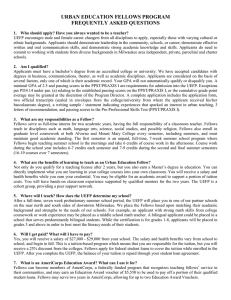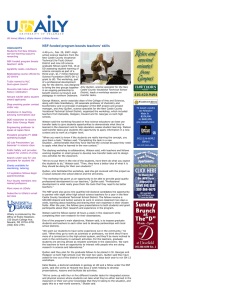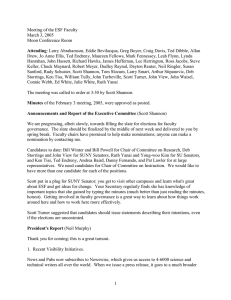Fostering the Next Generation of Scientists
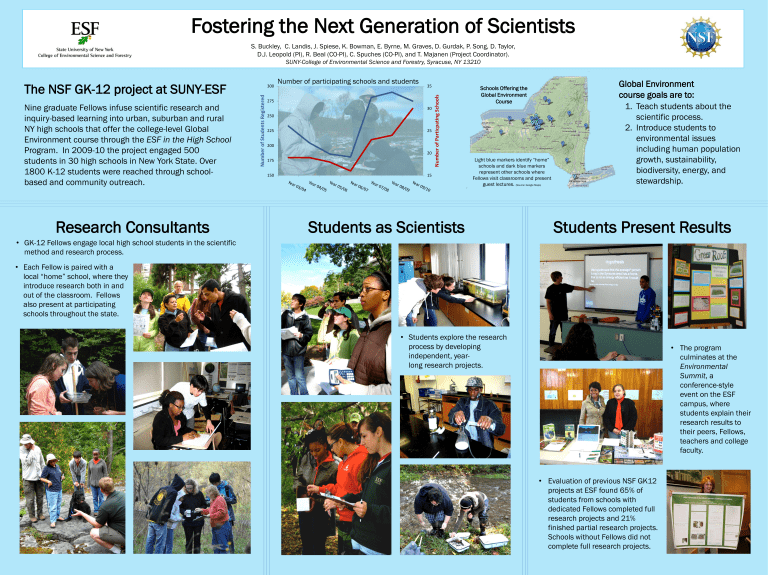
Fostering the Next Generation of Scientists
S. Buckley, C. Landis, J. Spiese, K. Bowman, E. Byrne, M. Graves, D. Gurdak, P. Song, D. Taylor,
D.J. Leopold (PI), R. Beal (CO-PI), C. Spuches (CO-PI), and T. Majanen (Project Coordinator).
SUNY-College of Environmental Science and Forestry, Syracuse, NY 13210
The NSF GK-12 project at SUNY-ESF
Nine graduate Fellows infuse scientific research and inquiry-based learning into urban, suburban and rural
NY high schools that offer the college-level Global
Environment course through the
ESF in the High School
Program. In 2009-10 the project engaged 500 students in 30 high schools in New York State. Over
1800 K-12 students were reached through schoolbased and community outreach.
300
Number of participating schools and students
35
275
250
225
200
175
150
30
25
20
15
Schools Offering the
Global Environment
Course
Light blue markers identify “home” schools and dark blue markers represent other schools where
Fellows visit classrooms and present guest lectures.
(Source: Google Maps)
Research Consultants
• GK-12 Fellows engage local high school students in the scientific method and research process.
• Each Fellow is paired with a local “home” school, where they introduce research both in and out of the classroom. Fellows also present at participating schools throughout the state.
Students as Scientists
Global Environment course goals are to:
1. Teach students about the scientific process.
2. Introduce students to environmental issues including human population growth, sustainability, biodiversity, energy, and stewardship.
Students Present Results
• Students explore the research process by developing independent, yearlong research projects.
• The program culminates at the
Environmental
Summit
, a conference-style event on the ESF campus, where students explain their research results to their peers, Fellows, teachers and college faculty.
• Evaluation of previous NSF GK12 projects at ESF found 65% of students from schools with dedicated Fellows completed full research projects and 21% finished partial research projects.
Schools without Fellows did not complete full research projects.
